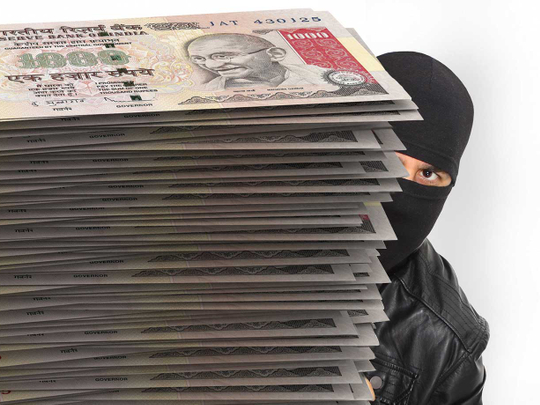
“Damned if you do, damned if you don’t ...”
Students of the Indian Institute of Management, Ahmedabad couldn’t comprehend my one-line answer to their question, “What do you think about demonetisation?” The gathering of 200-odd bright minds expected to run multibillion dollar companies in the future didn’t realise they were soon going to get a 360-degree view of the biggest disruption India is going through right now.
I asked them to close their eyes for a while and replace the image of India’s Prime Minister with anyone they deem fit who can address four broad themes.
1. India’s future and future Indians
If we have to conjure up images of our world in 2030 or 2040, it’s clear that our day-to-day life is moving towards an “online” world where geography will be history. Same is the case with transactions 900 million mobile phone users in India are either already transacting through their smartphones or are getting ready to do so.
Banking habits of 20 years ago versus today are so radically different. Today’s child teaches the parent how to operate smart phones, how to buy online, how to download music or movies. A lot has changed. I have not visited my bank for almost a decade whereas my dad used to visit his bank for smallest of transactions, including passbook entries.
Today, in rural India customers are already using Self Service Passbook Printing.
Given a choice, no human wants to change. Without demonetisation, even in 2116 Indians would continue to use paper currency, propagating the same apprehensions of today. How do you expect a villager in a $330 trillion Indian economy in 2116 to shift to cashless?
Vision is always about the future. Our children are certainly not going to transact business the way we do it today.
Detractors of demonetisation ought to understand that funny thing about the future is that there’s no guarantee that it will look like the past. Contexts change and when they do, old rules no longer apply. Following them blindly does not honour the past, but diminishes it by confusing wisdom with fealty.
2. Corrupt Indians and our corrupt ways
In India, corruption is all pervasive. And the worst part is one can easily get away with it. Former Prime Minister Rajiv Gandhi in a 1985 speech gave a stinging indictment of the system, saying only a fraction of every rupee spent on the poor was reaching them. Politicians, bureaucrats, businesses, municipalities and media are happily in bed with corruption one way or the other. And with zero fear since nobody is policing.
There are fiefdoms galore churning out obnoxious people who have suddenly become rich through unfair means. They have never followed queues, have sheer contempt for system. Somewhere you have to draw a line and make them believe they are mere mortals.
3. Currency compromised
A 2009 report by the Central Bureau of Investigation (CBI) shook the nation. It said that the secret template being used to print currency notes has been “compromised”. Immediately a special team was formed comprising the CBI, Directorate of Revenue Intelligence, Reserve Bank of India and Central Forensic Science Laboratory. The supplier of raw currency, the ink and the silver thread is the same for India and Pakistan. It’s not about how much damage has been done, but the security agencies have been suggesting that massive consignments were about to flood Indian shores.
4. Enemy countries using it as a tool to destabilise India
In currency lingo, India had become so gullible that neighbouring countries were using Rs1,000 and Rs500 bills as a tool to destabilise India. Proof? Post Demonetisation, violent protests in Kashmir stopped, Naxalite-Maoists insurgency has turned around in Karnataka, Chhattisgarh, West Bengal and Odisha and more than 1,000 of them have surrendered post-demonetisation.
Critics have been asking: Has it yielded results? Have you found black money? Is there reduction in corruption? Can you guarantee new currency will not be comprised?
Policing is a journey, never a destination. Same with fiscal policing of which demonetisation is a small part.
Will there ever be an auspicious day to take tough decisions? Should it have been done five years ago or today? Or should it be done five years from now?
Who should take responsibility for the four themes mentioned above?
— The writer is director, Brandmark Group












